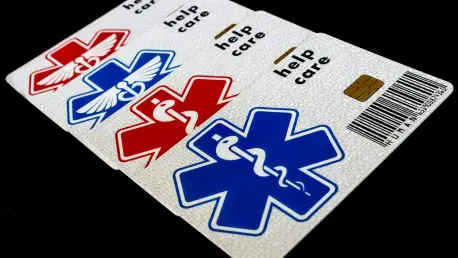Nigeria faces a significant challenge regarding health insurance enrollment, with only 20 million citizens, or 10% of the population, currently covered under health schemes. This alarming statistic was highlighted by Dr. Kelechi Ohiri, Director-General of the National Health Insurance Authority (NHIA), during a vital conference in Abeokuta. In a country grappling with economic challenges, the lack of health insurance coverage poses a severe risk to the population. Rising medical costs make it increasingly difficult for Nigerians to afford necessary healthcare, leading to potential gaps in treatment and increased financial vulnerabilities. Dr. Ohiri underscored the necessity of leveraging insurance to ease the financial burdens brought on by medical emergencies and called for enhanced governmental efforts to raise awareness about the NHIA and state-level insurance agencies. This scenario sets the stage for a critical examination of the current state of health insurance in Nigeria and offers insights into potential improvements.
The Role of Government and Private Sectors
The involvement of both government and private sectors is essential in expanding health insurance coverage in Nigeria. The Association of Nigerian Private Medical Practitioners’ (ANPMP) National President, Dr. Kay Adesola, addressed the need for widespread insurance to safeguard Nigerians from receiving substandard medical care from unqualified practitioners. With enrollment rising from 3.5% two decades ago to 10% currently, there is progress, yet the journey toward comprehensive coverage remains far from complete. Dr. Adesola pointedly criticized the insufficient 5.5% of the national budget allocated to healthcare, advocating for the fulfillment of the Abuja Declaration’s goal of 15%. This figure reflects the urgent requirement for more substantial investments in health, directly impacting the ability to provide robust insurance options. Monitoring improvements in Health Maintenance Organizations (HMOs) showcases progress but underscores the ongoing need for greater investment and operational excellence.
Collaboration between private medical practitioners and government agencies is recognized as a keystone in improving insurance outcomes. ANPMP emphasized collective initiatives to identify and phase out inadequate healthcare facilities, particularly in regions like Ogun State, where lacks in infrastructure and services have substantial effects on healthcare quality. These coordinated efforts highlight the shared commitment to enhancing not just insurance coverage, but also the overall standard of care available to the Nigerian population. By fostering partnerships and open dialogues between these sectors, greater strides can be made toward achieving equitable access to quality healthcare services across Nigeria.
Strategies for Enhancing Health Insurance Participation
Engaging the Nigerian populace in health insurance programs demands stronger public awareness campaigns and tailored strategies. Dr. Kelechi Ohiri and other health advocates suggest leveraging community engagement initiatives to increase enrollment, positioning insurance as a fundamental financial safety net rather than a luxury. This involves pursuing strategic partnerships with local governments, community leaders, and non-governmental organizations to foster trust and relay the tangible benefits of insurance in accessible terms. Demonstrating the positive impact of insurance during medical emergencies can aid in shifting public perception and encourage broader participation.
Financial incentives and flexible payment structures may also play a role in motivating enrollment. Considering the economic diversity across Nigeria, implementing adaptable payment plans aligned with individual financial capacities could lower barriers to entry. Additionally, fostering a competitive environment among insurance providers through policy reforms could lead to better pricing, improved service offerings, and ultimately, broader coverage. Looking toward technology, digital tools and platforms could streamline registration processes, making participation more convenient and transparent for users. As these strategies unfold, the overarching objective remains clear: to ensure that Nigeria’s health insurance system evolves into a resilient support mechanism, protecting citizens and promoting sustainable public health advancements.
Future Directions and Considerations
Nigeria is grappling with a major issue in health insurance coverage, as only 20 million people, representing just 10% of the population, are currently enrolled in health insurance plans. This concerning figure was spotlighted by Dr. Kelechi Ohiri, the Director-General of the National Health Insurance Authority (NHIA), at a significant conference in Abeokuta. The country’s economic hurdles exacerbate the lack of insurance, creating a dire situation for many Nigerians. As medical expenses rise, citizens face difficulties accessing necessary healthcare, leading to untreated illnesses and growing financial instability. Dr. Ohiri emphasized the importance of utilizing health insurance to alleviate financial pressures from medical emergencies. He urged the government to strengthen efforts to raise public awareness about the NHIA and state-level insurance bodies. This situation demands a thorough analysis of Nigeria’s current health insurance status and opens discussions on potential strategies for improvement and expanding coverage to more of the population.









